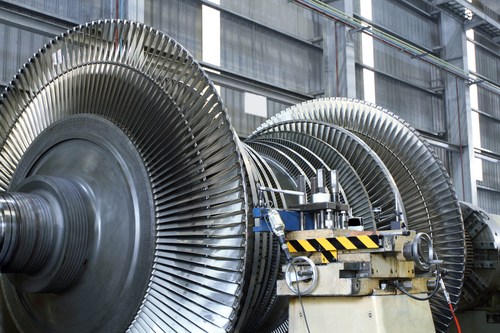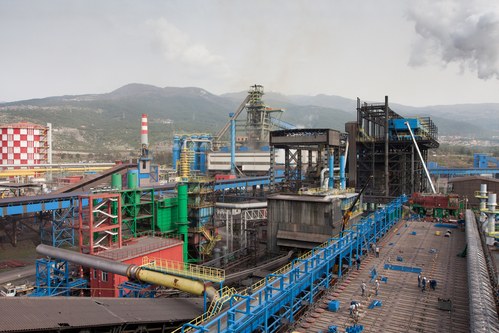Doosan Heavy Industries & Construction pushes ahead with hydrogen gas turbine development
South Korea’s Doosan Heavy Industries & Construction (DHIC) is accelerating the development of environmentally friendly gas turbines that run on hydrogen. DHIC announced June 3 that it has signed an agreement with three partners to promote hydrogen turbine demonstration plants. In addition to Doosan, the parties are the Ulsan Municipal Government, Korea East-West Power and SK Gas. They will work together on a project to convert existing gas turbines at the Ulsan Combined Thermal Power Plant into hydrogen-fueled turbines.
The conversion and operation will require increased importation of relevant components and machinery, which may generally fall under the certification requirement for KC Mark certification or KC EMC certification in Korea. When completed, the plant will have a capacity of 270 MW, with commissioning planned for 2027. The gas turbines in Ulsan have been in operation for more than 25 years. The planned project is considered the first of its kind in Korea.
A day earlier, on June 2, DHIC signed an agreement with Korea Midland Power. Content of the agreement is the support of Korea Midland Power’s climate goals to be CO2 neutral by 2050 as well as to build up a domestic industry for hydrogen gas turbines. Korea Midland Power would like to use DHIC’s hybrid burner systems and hydrogen gas turbines, which the company has developed with the help of the government. In return, DHIC will develop the relevant technology for the turbines and prepare for series production of the parts.
Power plants that use hydrogen as fuel emit fewer pollutants than conventional plants that run on natural gas. The Korean Institute of Machinery and Materials calculated that if 30 percent of all power plants currently fueled by natural gas used hydrogen, CO2 emissions could be reduced by 10.4 percent. The institute also pointed out that no CO₂ is produced when hydrogen is burned. Industry experts predict the hydrogen gas turbine market will grow to as much as $35 billion by 2030.
DHIC has become the fifth company in the world to develop its own large-scale gas turbine power generation plants since 2019. It has also been working on hydrogen gas turbines since May 2020. The company participated in a nationwide project with the Korean Institute of Machinery and Materials to develop a high-efficiency hydrogen hybrid gas burner for power plants. Hybrid in this case stands for the use of different gases as fuel for the gas turbines or power plants.
South Korea is considered one of the most important and innovative industrial nations in the world. In order to gain market access to this highly technological country, products imported into South Korea must be tested and certified. The KC mark or KC certificate is roughly equivalent to the European CE mark and applies to 730 different products. MPR International GmbH has solid experience in Korea certification and competent local partners. We gladly advise you without obligation about the scope and procedure of a Korea certification.
If you need assistance or have any questions regarding Korean certifications like KC, KC EMC, KCs or KCs for explosion safety products, feel free to contact us any time.
Tel.: +49-69-2713769259
Email: info@korea-certification.com
Urgent questions?
Please do not hesitate to contact us via chat. You will find the chat window at the bottom right of each page (if this is not visible, please check your browser settings).
For more information you can download our free brochure “Korea Certification Made Easy – The Booklet“.
Posco lays foundation stone for South Korea’s first lithium plant
A groundbreaking ceremony was recently held in Gwangyang, Jeonnam Province, for the first lithium production facility in South Korea. For Posco, this step is another milestone in creating its own supply chain for batteries manufactured in South Korea, having already completed a factory for the production of cathodes, also in Gwangyang. To ensure the importation into Korea, electric vehicle components, which include batteries, among others, must undergo certification for the KC mark or KC certificate.
Korean steel giant Posco said at the groundbreaking ceremony in late May that the factory will be able to produce about 43,000 metric tons of lithium hydroxide annually at full capacity, a key raw material for making vehicle batteries. The company is investing $680.4 million to build the lithium plant, which covers 19 hectares and is located within the Yulchon Industrial Complex in Gwangyang, 418 km south of Seoul. Construction is scheduled to end in 2023. Posco said the amount of lithium that will be produced annually at the new factory is enough for the main drive batteries of about 1 million electric cars.
When completed, the factory will be the first lithium production facility in South Korea and will play an important role in making the country independent of lithium imports, which currently stand at 100 percent. The lithium hydroxide produced in the future will be an important core material for the cathodes of vehicle batteries with a nickel content of 80 percent or higher. The industry has recently become aware of the new material, which, compared to the current lithium carbonate, can significantly increase battery capacity and thus the range of electric cars.
Plans for the lithium plant in Gwangyang were approved by the supervisory board in April, and a new company called Posco Lithium Solutions was established. This is to operate the new plant and extract lithium hydroxide from ores supplied by a partner in Pilbara, Western Australia.
If you need assistance or have any questions regarding Korean certifications like KC, KC EMC, KCs or KCs for explosion safety products, feel free to contact us any time. Our experts are always available to answer any questions without obligation.
Tel.: +49-69-2713769259
Email: info@korea-certification.com
Urgent questions?
Please do not hesitate to contact us via chat. You will find the chat window at the bottom right of each page (if this is not visible, please check your browser settings).
For more information you can download our free brochure “Korea Certification Made Easy – The Booklet“.
South Korea’s Lotte Chemical ventures into green hydrogen business
Lotte Group has decided to enter hydrogen production as a new business line and growth market. At the same time, this is expected to benefit the Group’s sustainability goals. Lotte plans to import hydrogen in the form of ammonia from overseas and distribute it in Korea. The company also plans to supply hydrogen produced as a byproduct in petrochemical processes to gas stations. Lotte Precision Chemical, a subsidiary of Lotte Chemical, will import the sustainably produced ammonia from overseas and produce hydrogen from it for sale in Korea, said a senior Lotte Group executive. Importation of such chemicals and their containers often requires prior KC certification.
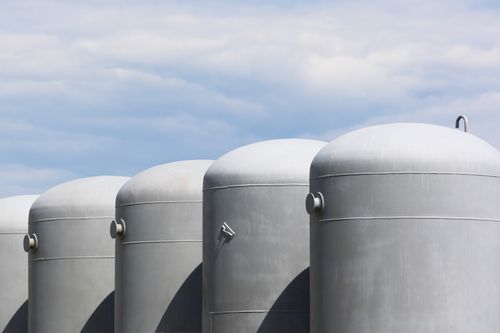
Ammonia has the chemical formula NH3 and a large amount of hydrogen (H) can be produced by splitting off the nitrogen (N). From its existing ammonia business, Lotte Precision Chemicals was able to generate sales of about $370 million, or 30 percent of total sales, last year in 2020. Ammonia as a feedstock for hydrogen production is particularly popular because of its ease of transportation. Unlike liquid hydrogen, which must be cooled at minus 253 degrees during transport, minus 33 degrees is already sufficient for ammonia. In addition, the density of ammonia is 1.5 times higher than that of hydrogen, which saves further transport costs.
For the new line of business, Lotte is working with South Korean energy companies to sell the hydrogen at filling stations. Plans call for selling the approximately 10,000 metric tons per year of hydrogen produced as a byproduct at Lotte’s Seosan Daesan plant as fuel in the nearby metropolitan area. Lotte also plans to add more hydrogen liquefaction plants at its facilities in Korea and overseas, as well as expand capacity at the Daesan plant.
South Korea is considered one of the most important and innovative industrial nations in the world. To gain market access to this highly technological country, products imported into South Korea must be tested and certified. The KC mark or KC certificate is roughly equivalent to the European CE mark and applies to 730 different products. MPR International GmbH has solid experience in Korea certification and competent local partners. We will be pleased to advise you without obligation about the scope and procedure of a Korea certification.
If you need assistance or have any questions regarding Korean certifications like KC, KC EMC, KCs or KCs for explosion safety products, feel free to contact us any time.
Tel.: +49-69-2713769259
Email: info@korea-certification.com
Urgent questions?
Please do not hesitate to contact us via chat. You will find the chat window at the bottom right of each page (if this is not visible, please check your browser settings).
For more information you can download our free brochure “Korea Certification Made Easy – The Booklet“.
Hyundai Motor awards car semiconductor production to Korean manufacturers
Hyundai Motor Group has disclosed some of its specifications for semiconductors and computer chips and shared them with Korean chipmakers. Analysts believe that Hyundai is taking this step to make itself less dependent on foreign chipmakers or suppliers. In addition, the company hopes to eliminate the current supply problems of computer chips by cooperating with Korean chip manufacturers. The distribution of microchips, and for other electronics, is regulated by KC certifications (Korea Certification) in South Korea, with the purpose to ensure the quality and safety of products.
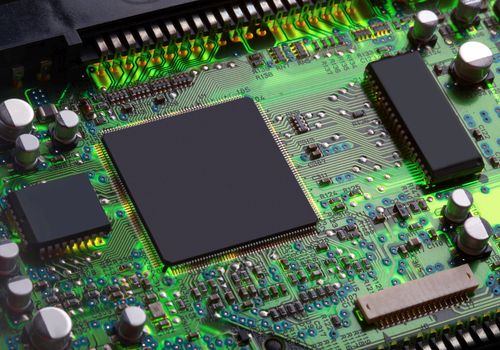
Hyundai Motor Co. and Hyundai Mobis subsidiaries had recently shared some specifications for auto chips and semiconductors with potential South Korean manufacturers. The eight types disclosed include analog semiconductors including microcontroller controllers (MCUs), ICs for screen controls and power management ICs (PMICs). For the MCUs, it is known that they are 32-bit chips based on a 65 nm process.
Currently, Hyundai imports the vast majority of its chips and semiconductors from abroad. Suppliers include Infineon from Germany, ST Microelectronics from Switzerland, NXP from the Netherlands, and Texas Instruments from the United States.
South Korea is considered one of the most important and innovative industrial nations in the world. Many products imported to South Korea have to be tested and certified in advance. MPR International GmbH recommends itself as a partner for your Korea certification. We will be pleased to check for you, without obligation, whether your products are subject to certification and to prepare an attractive offer for you.
If you need assistance or have any questions regarding Korean certifications like KC, KCC certification, KCs or KCs for explosion safety products, feel free to contact us any time.
Tel.: +49-69-2713769259
Email: info@korea-certification.com
Urgent questions?
Please do not hesitate to contact us via chat. You will find the chat window at the bottom right of each page (if this is not visible, please check your browser settings).
For more information you can download our free brochure “Korea Certification Made Easy – The Booklet“.
South Korea’s Hanwa Group considers entry into semiconductor machinery business
At the beginning of June, the Korea Times had published a corresponding report based on information from the industry. According to the report, Hanwa Group is planning to enter the manufacturing of machinery for the production of computer chips and other semiconductors. The company wants to expand its business model and hopes for synergy effects from its existing production of materials for the manufacture of chips. The focus of the new business unit is to be the production of machines and equipment for coating. In the production of chips, the so-called silicon wafers are coated with an extremely thin layer of certain chemical elements.
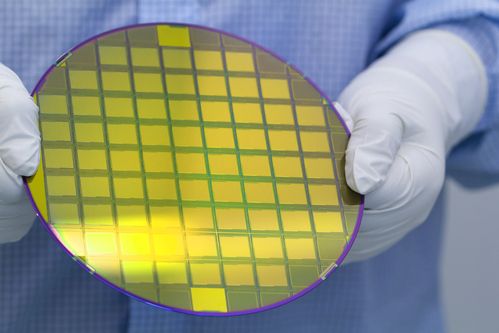
Hanwa Corporation is already involved in the production of machines for other industries and hopes to attract more customers with the planned division. Another Hanwa division operating worldwide in the chemical sector produces nitric acid. This is considered a core ingredient in the process of chip coating and wet cleaning. A Hanwa spokesman recently confirmed that the company plans to enter the chip machine business. However, a final decision has yet to be made.
Industry experts see Hanwa’s entry as a good opportunity to advance the company’s growth. Companies around the world are investing in expanding their production capacity due to the shortage of computer chips. Companies from Japan and the U.S. are leading the way in coating machines for semiconductors. According to the Korean Institute of Industrial Trade and Economics (KIET), Japan’s Tokyo Electron and the US’ Applied Materials and Lam Research have a 70 percent market share. In South Korea, medium-sized companies such as Jusung Engineering, Wonik IPS, Eugene Techonology and Tes produce machines for coating chips. KIET estimates that the production competence of Korean companies in this area is 90 percent compared to the market leaders.
South Korea is considered one of the most important and innovative industrial nations in the world. Many products imported to South Korea have to be tested and certified in advance. Many products, such as computer chips, semiconductors and manufacturing equipment, imported into South Korea must be pre-tested and possibly certified with the KC Mark. Korea certification is one of the biggest barriers to entry for products to be imported into Korea.
If you need assistance or have any questions regarding Korean certifications like KC, KC EMC, KCs or KCs for explosion safety products, feel free to contact us any time.
Tel.: +49-69-2713769259
Email: info@korea-certification.com
Urgent questions?
Please do not hesitate to contact us via chat. You will find the chat window at the bottom right of each page (if this is not visible, please check your browser settings).
For more information you can download our free brochure “Korea Certification Made Easy – The Booklet“.
Manufacturing sector props up South Korean economy
The Korean Institute of Industrial Trade and Economics announced the related news on May 5, 2021: South Korea ranks third in the CIP index out of 152 countries, behind Germany and China. The 2018 Competitive Industrial Performance (CIP) Index was released by the United Nations Industrial Development Organization (UNIDO) in July last year. Out of 28 major nations, South Korea ranked second in manufacturing, the institute added. The decline in South Korea’s economic growth last year was only 40 percent of the G7 average. Unemployment went up by only 15 percent compared to the G7 nations.
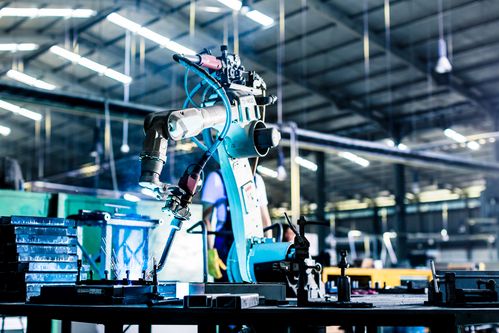
According to the institute, the South Korean economy did relatively well as exports from the domestic manufacturing industry went up. The Covid 19 pandemic had only a negative impact on local demand for manufactured goods, according to the institute’s evaluations. South Korean companies in semiconductors, displays and petrochemicals are market leaders in their segments and contribute the most to the country’s exports. Many of the manufacturers are well connected in international markets and have corresponding sales opportunities. However, the institute advises that the export market situation should be closely monitored, as there have been recent shifts in buyers due to the trade dispute between China and the United States.
In other news, the OECD recently upgraded its forecast for this year’s South Korean economic growth from 3.3 to 3.8 percent. High foreign demand for IT products, which account for 20 percent of exports, was highlighted here, as well as an increase in the popularity of cars made in South Korea. The Bank of Korea is even more optimistic in its forecast and even sees economic growth of 4.0 percent this year. If this target is achieved, it would be the highest growth rate since 2010.
To import or sell in South Korea, industrial products are subject to KC certification (also known as KC Mark). The KC mark or KC certificate is roughly equivalent to the European CE mark and applies to 730 different products. KC certification, or Korea Certification, is primarily about identifying and containing a potential risk to consumer health and safety. We will be pleased to provide you with non-binding advice regarding Korea Certification and would be happy to carry it out for you.
If you need assistance or have any questions regarding Korean certifications like KC, KC EMC, KCs or KCs for explosion safety products, feel free to contact us any time.
Tel.: +49-69-2713769259
Email: info@korea-certification.com
Urgent questions?
Please do not hesitate to contact us via chat. You will find the chat window at the bottom right of each page (if this is not visible, please check your browser settings).
For more information you can download our free brochure “Korea Certification Made Easy – The Booklet“.
New car sales in Korea up 17 percent year-on-year in January
New car sales in South Korea rose by double digits in January due to extended tax benefits and new models with environmentally friendly engines. The growth is a source of optimism for the Asian country’s auto industry, with many manufacturers hoping for an early recovery after the end of the Covid 19 pandemic. According to the Korean Association of Automobile Manufacturers, a total of 116,550 vehicles were sold in South Korea in January, up 16.6 percent from the same month last year and just as the novel coronavirus was becoming a global pandemic. Current sales are mainly composed of eco-friendly vehicles and SUVs.
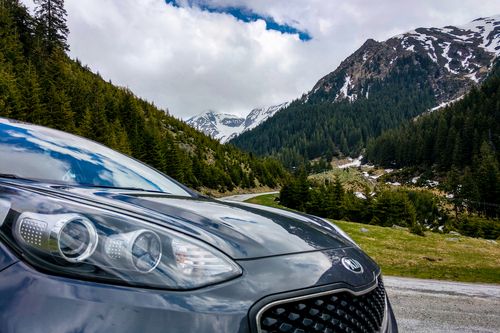
Sales of eco-cars increased by more than 82 percent year-on-year as manufacturers launched several new models. Among them were the new hybrid versions of the Hyundai Grandeur, Hyundai Tucson and Kia Sorento. More than 10 percent of all vehicles sold in January were eco-cars. Sales of hybrid-powered vehicles were up 94 percent while electric cars were down 62 percent. This is attributed to an as yet unapproved Korean government subsidy for electric vehicles. Cars with fuel cells gained 75.3 percent, led by the Hyundai Nexo with 140 vehicles sold. All automakers except Renault Samsung Motors Co. reported dramatic increases in domestic sales.
South Korea’s largest automaker, Hyundai Motor Co. reported a 25 percent increase in its sales figures. This was largely contributed by their popular SUV models such as Tucson, Santa Fe and Palisade, as well as the Grandeur and Genesis sedans. Kia Corporation recorded a 12 percent increase due to the rising popularity of its Carnival and Sorento models. Improved production conditions following an agreement with the relevant union in December 2020 also contributed to the better sales figures. Exports of new vehicles are also well on the way to recovery. Exports of new cars from Korea rose 29.5 percent in January from a year earlier. Turnover rose 40.2 percent due to increasing demand for high-end vehicles from South Korea.
Are you interested in the Korean automotive market? Before your products can be launched on the market there, they must undergo certification. MPR International GmbH will be pleased to advise you regarding Korea certification in the automotive sector. We have already successfully assisted many large automotive suppliers and vehicle manufacturers with locations in Korea with their certification projects and have been supporting these companies for several years. Our experts are pleased to answer your questions regarding a pending Korea certification by phone or e-mail.
If you need assistance or have any questions regarding Korean certifications like KC, KC EMC, KCs or KCs for explosion safety products, feel free to contact us any time.
Tel.: +49-69-2713769259
Email: info@korea-certification.com
Urgent questions?
Please do not hesitate to contact us via chat. You will find the chat window at the bottom right of each page (if this is not visible, please check your browser settings).
For more information you can download our free brochure “Korea Certification Made Easy – The Booklet“.
South Korea’s shipbuilders remain global leaders
Consulting firm Clarkson Research reported in early March that orders for 92 new ships were placed globally in the previous month. Of these, South Korean shipbuilders secured 43 orders. These include orders for seven large oil tankers and five A-max tankers. For large container ships with more than 12,000 standard containers (TEU), South Korean companies won 13 of 17 tenders. Chinese and Japanese shipbuilders follow in second and third place on the world market.
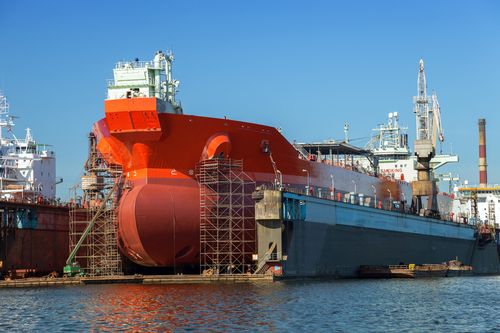
The gap in market share between South Korea and China increased by 16 percent to 56 percent in February, while China gained only one percentage point from 39 to 40. In compensated gross tonnage (CGT), South Korean companies gained 2.5 million CGT in the first two months of the year while China and Japan remained unchanged at 1.9 million CGT and 0.32 million CGT, respectively.
In the same period, Korea Shipbuilding & Offshore Engineering won orders for 46 vessels worth US$3.7 billion. This already represents a quarter of the company’s target for this year. Samsung Heavy Industries received orders for 31 vessels worth US$2.4 billion, securing as much as 31 percent of its target for the year. Daewoo Shipbuilding & Marine Engineering was awarded orders for 6 new vessels worth US$600 million, reaching 8 percent of its 2021 target.
Current backlog of open orders worldwide increased by 780,000 CGT to 71.06 million CGT in February. Broken down into the top 3, China accounted for 25.7 million CGT, South Korea 22.47 and Japan 7.97 million CGT. The Clarkson Newbuilding Price Index increased by one index point to 128 points in February. This was the third consecutive month that the indicator rose.
South Korea is considered one of the most important and innovative industrialized nations in the world. In order to gain market access to this highly technological country, products imported into South Korea must be tested and certified. The KC mark or KC certificate is roughly equivalent to the European CE mark and applies to 730 different products. MPR International GmbH has solid experience in Korea certification and competent local partners.
If you need assistance or have any questions regarding Korean certifications like KC, KC EMC, KCs or KCs for explosion safety products, feel free to contact us any time.
Tel.: +49-69-2713769259
Email: info@korea-certification.com
Urgent questions?
Please do not hesitate to contact us via chat. You will find the chat window at the bottom right of each page (if this is not visible, please check your browser settings).
For more information you can download our free brochure “Korea Certification Made Easy – The Booklet“.
Korea’s display manufacturers anticipate higher demand of OLED displays
Due to the auto industry’s shift to electric and self-driving vehicles, OLED displays are also increasingly being installed in models. Korea’s two largest display manufacturers, LG Display Co. and Samsung Display Co. could benefit from this. The value of global vehicle OLED production will expand from $49.72 million last year to $263.5 million in 2022. It is expected to reach as high as US$671.7 million by 2026. That’s according to an estimate by market watchers Omdia.
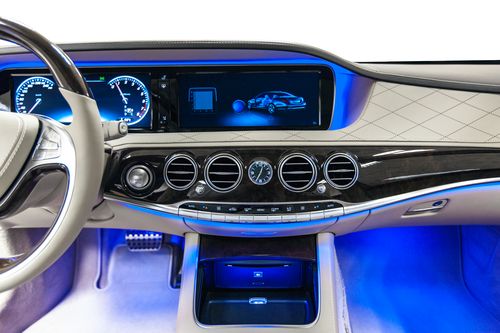
Screens in vehicles have recently become an important equipment feature, and although LCD displays continue to be predominantly used, demand from high-resolution large OLEDs has been on the rise. Premium manufacturers in particular are using OLED screens in their luxury vehicles to differentiate themselves from their competitors. LG Display has been producing so-called plastic P-OLEDs for use in vehicles since 2019, and the company’s market share is 92.5 percent in terms of total sales of the OLED automotive supplier market last year. In a distant second place is Samsung Display with only 6.9 percent. According to a company spokesperson, LG has a technology lead in this area and is now expanding its OLED offerings for the automotive industry.
Mercedes-Benz, among others, is one of LG’s customers and was already eagerly awaiting the market maturity of large OLED screens. The German automaker is unveiling the seventh generation of its S-Class sedan with LG screen technology this year, and the new EQS electric vehicle also has LG’s P-OLED display installed. Cadillac’s latest version of the Escalade SUV is equipped with an infotainment system that uses an LG 38-inch P-OLED display. Back in 2016, EV giant Tesla announced the introduction of LG OLED screens in its vehicles. To import or sell electronics in South Korea, they are subject to KC certification (also known as KC Mark). The KC-Mark or KC certificate is roughly equivalent to the European CE mark and applies to 730 different products. KC certification, or Korea Certification, is primarily about identifying and containing a potential risk to consumer health and safety. We will be pleased to provide you with non-binding advice regarding Korea Certification and would be delighted to carry it out for you.
If you need assistance or have any questions regarding Korean certifications like KC, KC EMC, KCs or KCs for explosion safety products, feel free to contact us any time.
Tel.: +49-69-2713769259
Email: info@korea-certification.com
Urgent questions?
Please do not hesitate to contact us via chat. You will find the chat window at the bottom right of each page (if this is not visible, please check your browser settings).
For more information you can download our free brochure “Korea Certification Made Easy – The Booklet“.
Korean retail sales up in spring
According to multiple sources, Korea’s three largest retailers, Lotte, Shinsegae and Hyundai saw their sales increase an average of 87 percent year-over-year during the first weekend of March. This random sample found that sales even slightly surpassed 2019 levels, when there was no Covid-19. Lotte, for example, saw a 9 percent increase, Shinsegae 14 percent and Hyundai 5.3 percent. Revenue was led by affluent customers buying luxury and electronic items after a large proportion of them had not made major expenditures for almost a year. In the lower price segment, new clothing and cosmetics were in high demand.
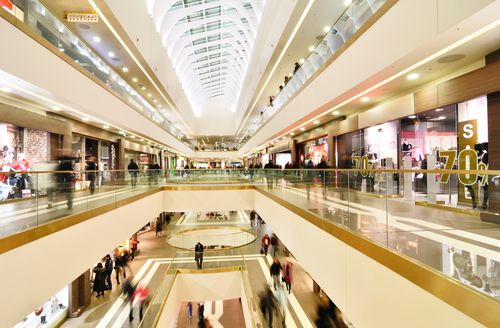
In Lotte shopping centers, cosmetics sales increased 91 percent, luxury items increased 143 percent, and home appliances and furniture increased 49 percent. Demand for cosmetics under the SKW100,000 or $87.5 threshold was stronger than ever. Consumers bought these more at shopping malls as duty-free stores remained closed and during the dry spring weather, many shoppers increased their use of skin care products. At Shinsegae Shopping Center, sales of luxury items climbed 109.9 percent and home appliances 75.7 percent. Sales of women’s clothing more than doubled. All figures are for the same period last year, the first weekend of March.
Convenience stores have also seen their wine sales increase recently. Many consumers are treating themselves to some luxury at home, as eating and drinking in restaurants is limited or impossible due to the pandemic.
Products made or imported in South Korea require Korea certification before sale. These can be consumer goods such as electronics, but food products also fall under these legal regulations. KC certification, or Korea Certification, is primarily about identifying and containing a potential risk to consumer health and safety. We will be pleased to advise you without obligation regarding a Korea Certification and would be delighted to carry it out for you.
If you need assistance or have any questions regarding Korean certifications like KC, KC EMC, KCs or KCs for explosion safety products, feel free to contact us any time.
Tel.: +49-69-2713769259
Email: info@korea-certification.com
Urgent questions?
Please do not hesitate to contact us via chat. You will find the chat window at the bottom right of each page (if this is not visible, please check your browser settings).
For more information you can download our free brochure “Korea Certification Made Easy – The Booklet“.



